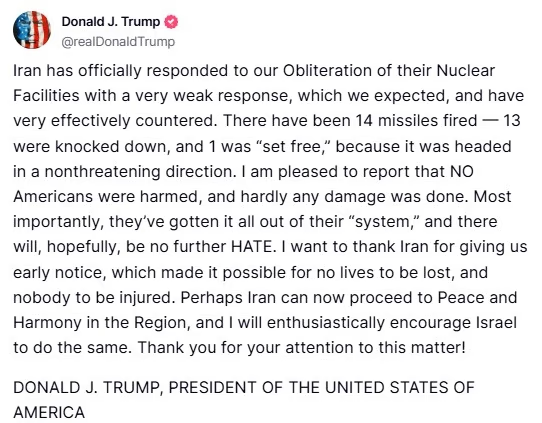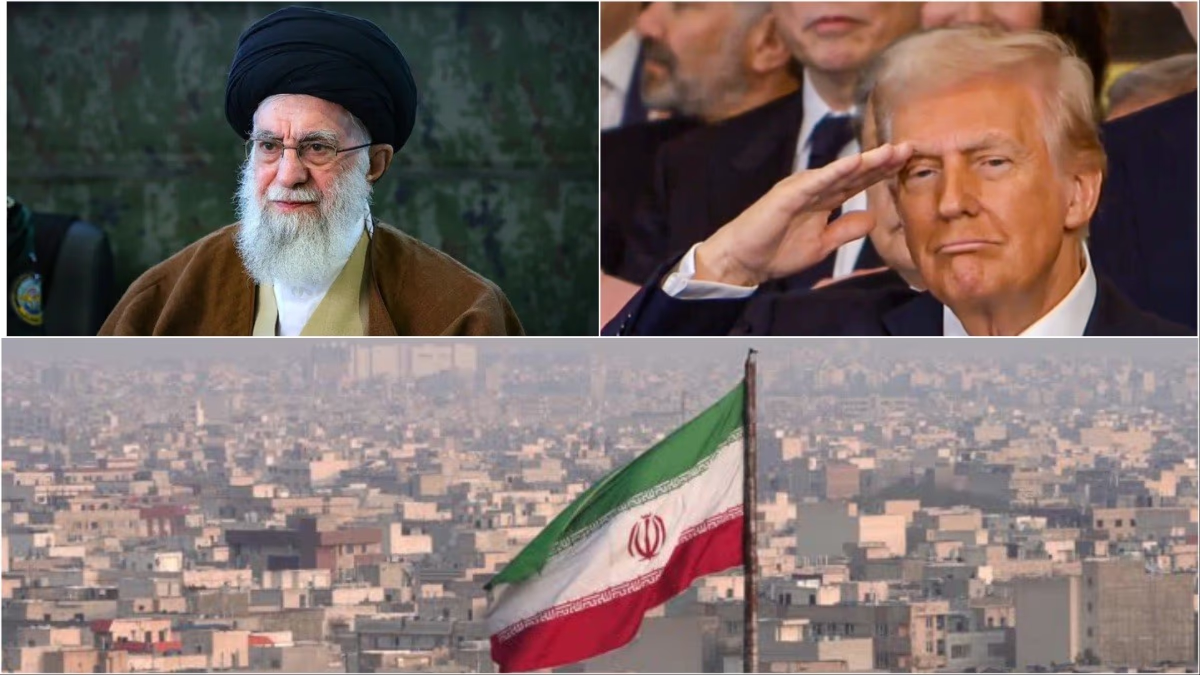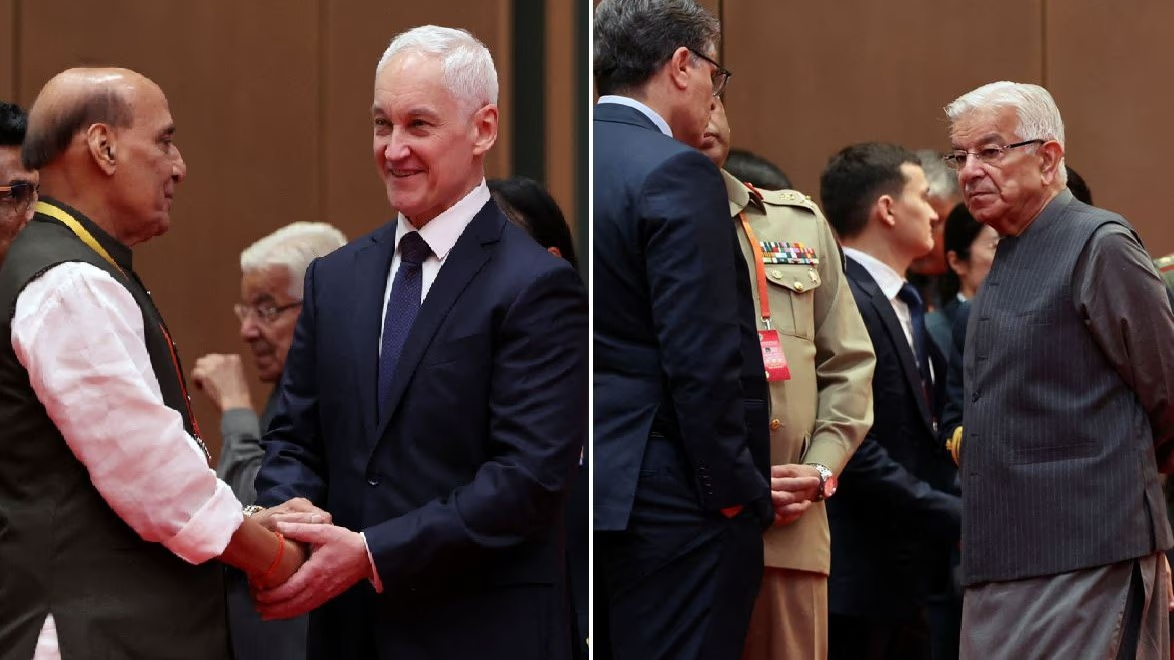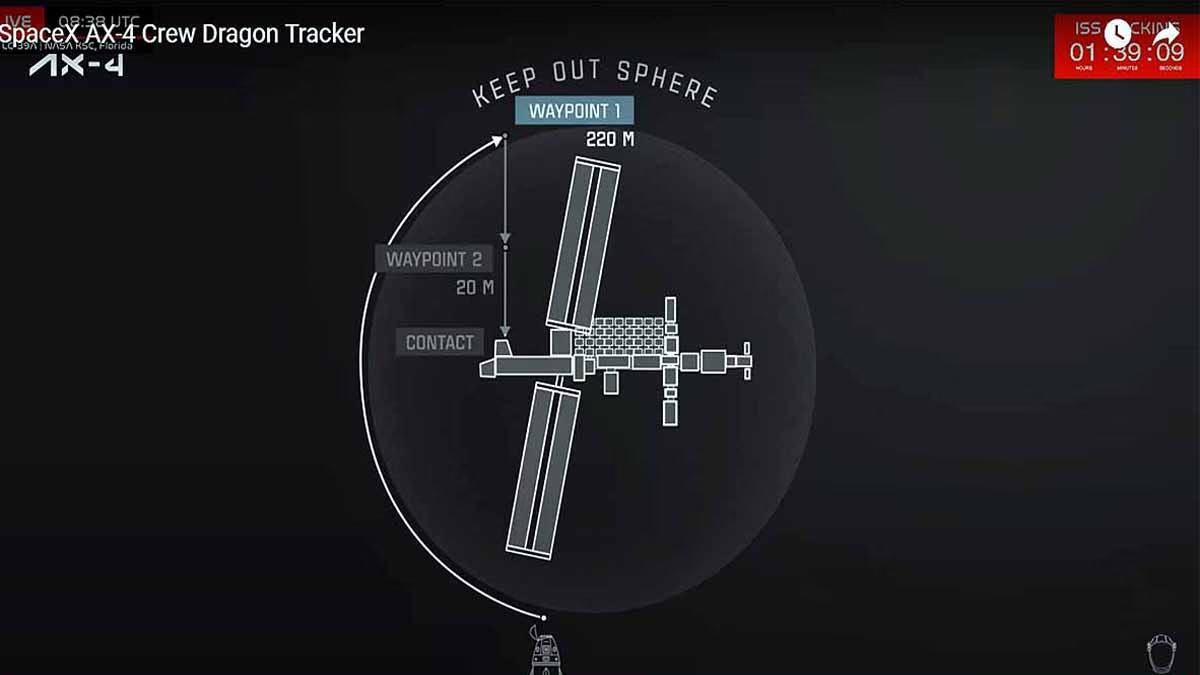MAGA, or Make America Great Again, has been Donald Trump's quintessential slogan symbolizing his nationalist and economic policies. But amidst U.S. aggression towards Iran, President Trump introduced a new mantra: MIGA, or Make Iran Great Again. Trump and Netanyahu achieved their primary goal of derailing Iran's nuclear program. On Sunday, Trump targeted Iran's three nuclear centers, Isfahan, Natanz, and Fordow, achieving this objective.
Heavy damage struck these nuclear sites due to the attacks. Their operational future seems dim. But what's next for the U.S.? Is it the downfall of Khamenei's regime in Iran and the establishment of a new, secular government?
Following this, the U.S. made efforts for a ceasefire between Iran and Israel, though the task wasn't simple. Iran didn't want its identity to be of a nation defeated in war with ruined nuclear sites.
Despite U.S. efforts for a truce, Iran plotted revenge. It targeted the American airbase at Al Udeid in Qatar. Reports state multiple missiles were launched at the base in Qatar and Al Asad in Iraq. Declaring the attack, Iran claimed its vengeance complete.
Trump downplayed Iran's assault, stating of the 14 missiles fired, 13 were intercepted mid-air, with the remaining causing no damage.

Source: aajtak
Iran's Supreme Leader Khamenei acknowledged the attack caused no casualties and assured that Iran is not a nation that surrenders.
Finally, on June 23, 2025, Trump announced on his social media platform, Truth Social, that Israel and Iran agreed to a "complete ceasefire," effective in six hours and fully implemented in 24. He called it a step to end the "12-day war."
Is the U.S. considering its next objective?
The question arises: post-ceasefire, will the U.S. and Israel pursue their next goal? The dethronement of Ali Khamenei in Iran and setting up a new government? Trump hinted at this in a post on Truth Social, underlining the slogan Make Iran Great Again as either satirical or strategic regarding Iran's condition.
Trump's statement suggests that power unable to make Iran great doesn't deserve its hold. He wrote, "While 'regime change' may not be politically correct, if Iran's current regime can't make the country great again, then why not regime change??? MIGA!!!"
This post aligns with Trump's policy of weakening Iran's nuclear power and influence. Following recent American strikes (Natanz, Fordow, Isfahan), Trump's statement seems an attempt to destabilize or provoke internal dissent in Iran.
Trump awaits reactions from Iran's opposition.
Notably, Trump's style involves perplexing opponents, acting contrary to statements, and creating leverage for dialogue. By calling for "MIGA," he evokes past glory for U.S.-aligned Iranians. This tactic aims to provoke Iran's leadership or inspire hope for alternative leadership.
Raza Shah Pahlavi seeks Khamenei's removal
Raza Shah Pahlavi, son of exiled Iranian ruler Mohammad Reza Pahlavi, lives in exile in the U.S. Before Iran's Islamic Revolution in 1979, Raza Shah had ruled. He actively advocates for a change of power in Iran.
Raza Pahlavi desires a constitutional monarchy in Iran with a king empowered by the Constitution alongside other democratic institutions. The U.S. remains noncommittal regarding regime change in Iran.
Although Trump refrained from calling for regime change or stating U.S. involvement in toppling the Iranian government, his words forced top leaders into clarifying their stance.
Vice President J.D. Vance, Secretary of State Marco Rubio, and Defense Secretary Pete Hegseth emphasized America's interest lies in ending Iran's nuclear capabilities.
Vance told ABC News, "We don't seek regime change. We aim to end the Iranian nuclear program." "This is the president's directive for us."
America and Israel's long-term desire for Iran's regime change might be present, but they prefer it as a "revolution from within," not a direct military intervention, aiming to weaken Iran's military and nuclear power while fomenting dissent.
Could military actions result in regime change?
The U.S. has a history of ground operations in foreign lands, like Iraq (2003) and Afghanistan (2001). But these missions proved lengthy, costly, and politically controversial. Trump criticized previous administrations' policies and emphasizes recalling U.S. troops from the Middle East.
Whether America will seek regime change in Iran depends on war outcomes, international reactions, oil prices, and market signals.
Trump's commitment to avert direct warfare
Trump's strategy centers on diplomacy and airstrikes, incapacitating Iran enough to drive them to negotiate—a strategy proven successful through the ceasefire.
Initiating ground operations contradicts his commitment to avoid wars. Ground operations risk U.S. soldier casualties. In Western Asia, guerilla warfare and suicide attacks pose challenges to technically advanced U.S. forces. This adds to America's reluctance to take such risks.
Iran's military, regional proxies (Hezbollah, Hamas, Houthis, Iraqi militias), and geography make it an unyielding adversary, unlike Iraq or Libya. Direct war with Iran risks engulfing the Middle East.
Why Israel avoids a direct fight with Iran
Israel can't contemplate a ground operation in Iran without U.S. support. Its military resources for such operations are limited, while Iran boasts of expertise. Israel won't risk direct conflict with Iran's experienced Revolutionary Guards, especially in an adversarial and challenging landscape.
Iran's rugged terrain and skilled military pose a significant challenge for ground operations, with risks of extensive casualties and prolonged conflict.
Diplomatic dynamics are unpredictable, so Khamenei can't be complacent about his future.




